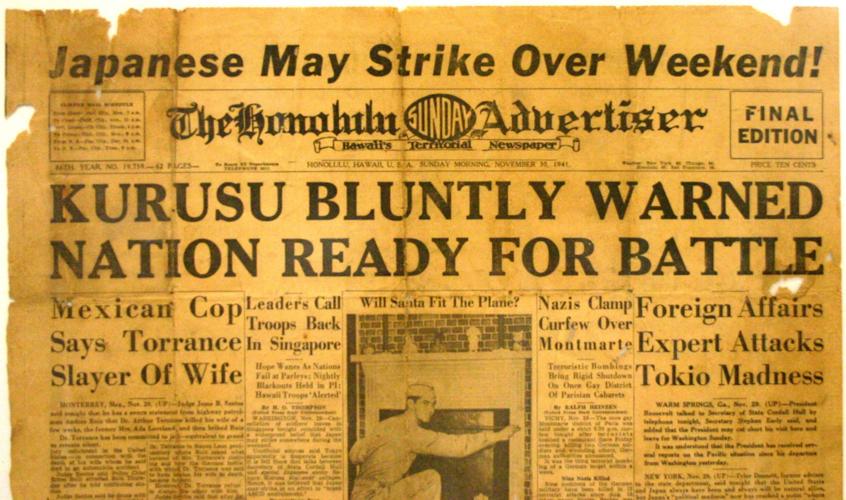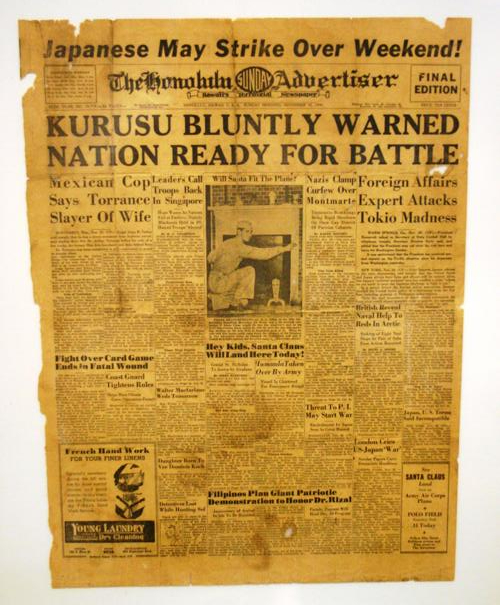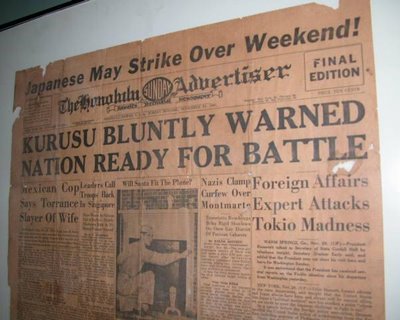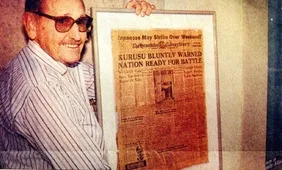The American Government Knew Japan Was Going To Attack And Did Nothing To Stop It
- When Japan seized southern French Indo-China in July 1941, Roosevelt responded by freezing Japanese assets in the United States and ending sales of oil to Japan. Japan’s military depended upon American oil. Without this oil, Japan’s military would soon grind to a halt. The British and the Dutch put sanctions on Japan as well.
- United States freezes Japanese assets
- The Path to Pearl Harbor: “President Roosevelt swung into action by freezing all Japanese assets in America. Britain and the Dutch East Indies followed suit. The result: Japan lost access to three-fourths of its overseas trade and 88 percent of its imported oil. Japan’s oil reserves were only sufficient to last three years, and only half that time if it went to war and consumed fuel at a more frenzied pace.”
- Newspaper Proof
- Don’t call it a surprise attack – The Japan Times
- “Headlines on the front page of the Honolulu Advertiser of Nov. 30, 1941, state: “Japanese May Strike Over Weekend.” In addition, Washington journalist Joseph Leib received documents from Secretary of State Cordell Hull two weeks before the attack declaring that Japan would attack Pearl Harbor on Dec. 7. A sneak attack? Yes. A surprise attack? No.”
- Pearl Harbor was a sneak attack but hardly a surprise – The Japan Times – Archive.ph Link
- “A surprise at the U.S. governmental level? “This dispatch is to be considered a war warning” read an admonition from U.S. Chief of Naval Operations Adm. Harold Stark on Nov. 27. “An aggressive move by Japan is expected within the next few days.”
- Headline, Page 1, Sunday, 30 November 1941
- Pearl Harbor Rides Again – Air & Space Forces Magazine
- “General Short Sees Danger of Oahu Air Raid,” said an Aug. 14, 1941 headline in the Honolulu Advertiser. Follow-up headlines took a more urgent tone: on Nov. 30, “Japanese May Strike Over Weekend,” and on Dec. 5, “Pacific Zero Hour Near.”
- “In 1940, the US had broken the Japanese diplomatic code, designated “Purple” by the Americans. The decoded Purple code intercepts were called “Magic.”
- November 30, 1941: Japan Sets the Date for its Attack – World War 2 Daily
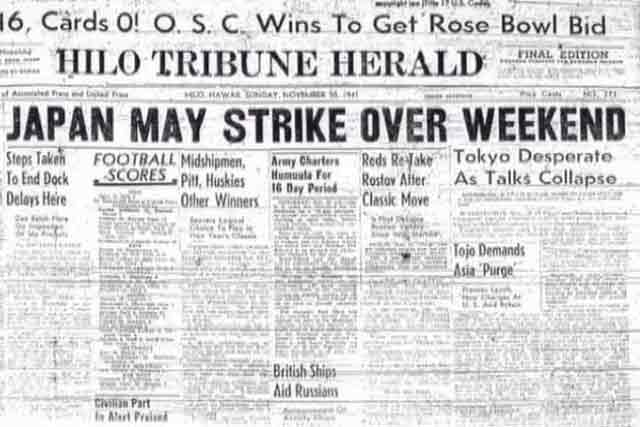
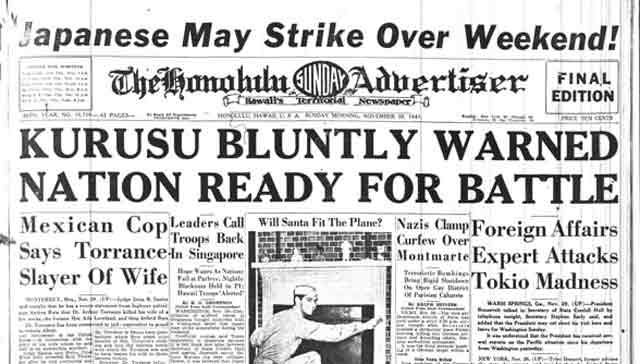
- Did News Warn of Pearl Harbor? – The Arcadian – Archive.ph Link
- “The front page of the Honolulu Advertiser as it appeared on Nov. 30, 1941 before it was torn from the newspaper. It hangs in the Military Heritage Museum at Fishermen’s Village in Punta Gorda.”
- Don’t call it a surprise attack – The Japan Times
-
- 70 Years of Lying About Pearl Harbor – Good Times Web
-
- Early warning of attack on Pearl Harbor documented – Panama City News Herald
- In the 1974 Autobiography of Dusko Popov titled “Spy.Counterspy“, the British Spy explains how he warned the American government of the impending attack and they did nothing in response.
- Book Review Quote: “I think my favorite part is when he goes to see J. Edgar Hoover, to tell him about the approaching attack on Search term:Pearl Search term:Harbor. Hoover doesn’t trust him and shelves the information. Popov theorizes that the reason why the sneak attack was so successful was because Hoover buried all incoming information on it.”

